topics
Rotary Cutters
Продукция
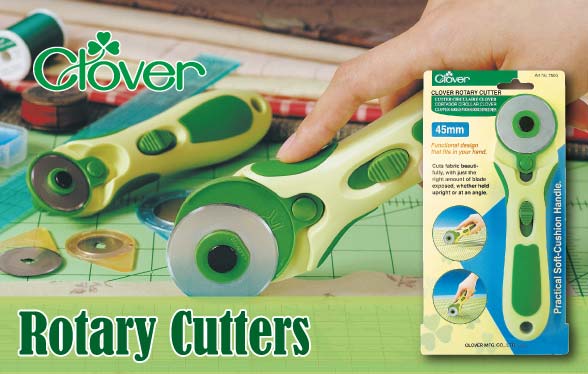
What is it?
Everything we do in sewing starts with cutting larger pieces of fabric into smaller pieces of fabric before we can reassemble them into larger pieces of fabric fitting our creative design. Fashion, quilting, home decor and a whole host of accessories for all of them. It all starts with the cut. And it makes sense then that the more precise that cut, the more precise our finished project will be and the happier we are with what we’ve accomplished. So what do we use to make these all important cuts? Scissors of course. We’ve been using them for eons. But they do have their limitations. They are naturally fatiguing to use, hard to keep sharp, require us to manipulate our fabric while cutting and can even distort our fabric in the process. So what can we use to fill in the gaps where scissors are perhaps not the best choice of cutting tools? Rotary cutters of course. They are non-fatiguing, easy to keep sharp and allow us to cut our fabric (even multiple layers) as it lies securely and, most importantly, smoothly on our cutting mats. The results? Happy hands and precise cuts for any project. The only problem they present is choosing which size rotary cutter to use when. Possible applications for our rotary cutters range from long strips for quilting and home decor to small angular curves for fashion and appliqué and everything in between. To make sure you have the right tool for the right job Clover has manufactured rotary cutters in 18mm. 28mm. 45mm and 60mm sizes, each designed to provide unmatched cutting performance for your fabric and uncompromising safety standards for you. Each is has a comfortable, ergonomically shaped handle to reduce wrist fatigue (standing or sitting), a safety shield to protect us and our fabric from unwanted cuts and an extremely sharp, durable and easily replaceable blade to make the desired cuts.
What does it do?
Okay, so we have these really cool rotary cutters in four sizes. They are extremely sharp (they’ll easily cut through multiple layers of upholstery fabric) and we’ve made them comfortable and safe to hold and use. So now what? When do we use them? Here are some ideas:
Art No. 7503: Rotary Cutter (18mm) - This is the smallest size available. This is the one we want to use in fashion for cutting short radius curves and trimming short seams. It’s a must for appliqué where we’ve got to get into really tight curves, either free hand or using a template.
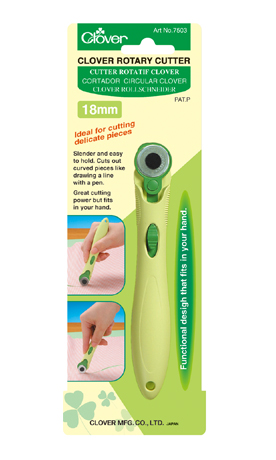
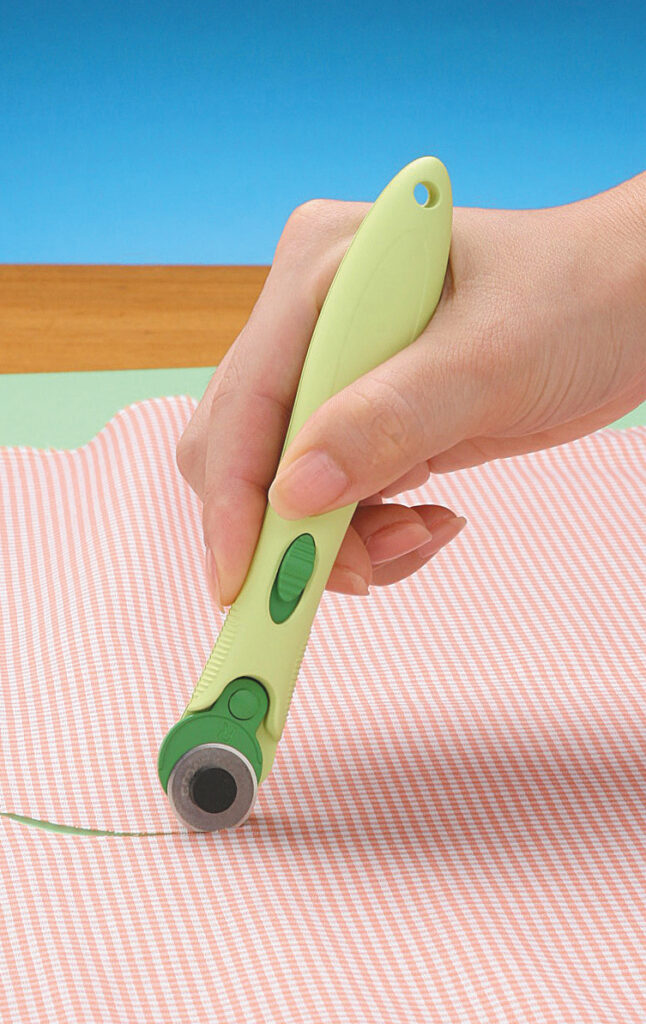
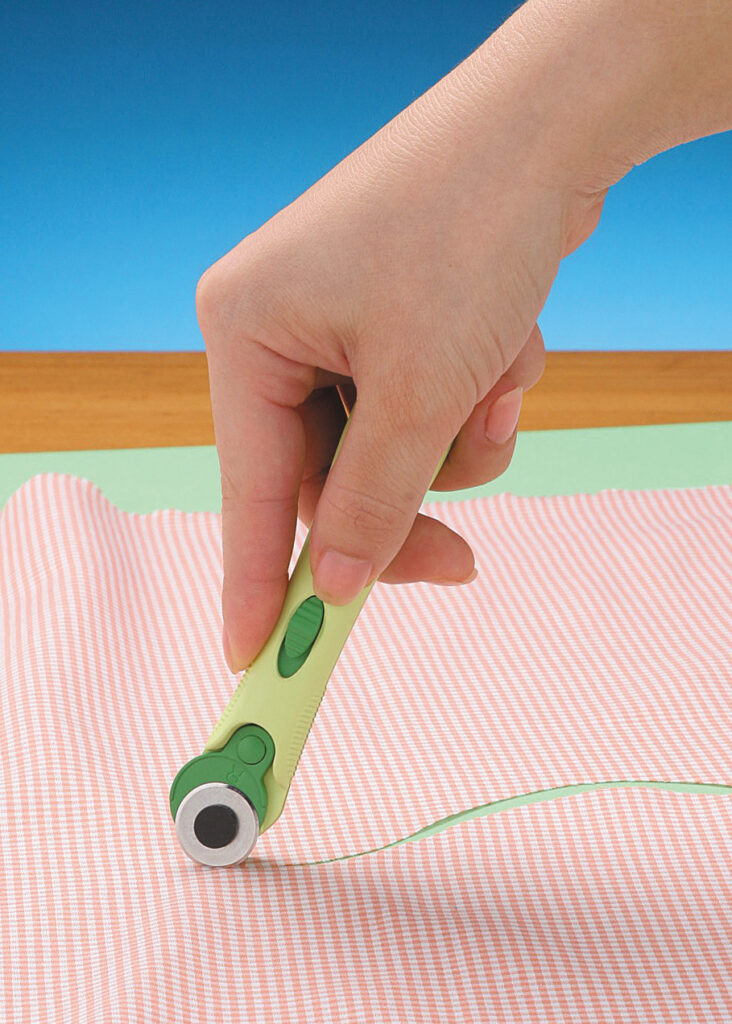
Art No. 7501: Rotary Cutter (28mm) - This is the smaller of the mid-size rotary cutters. It’s perfect for fashion or home decor cuts where we’re making medium radius curves, short straight cuts or trimming longer seams. It is also very handy for cutting more “relaxed” appliqué patterns.

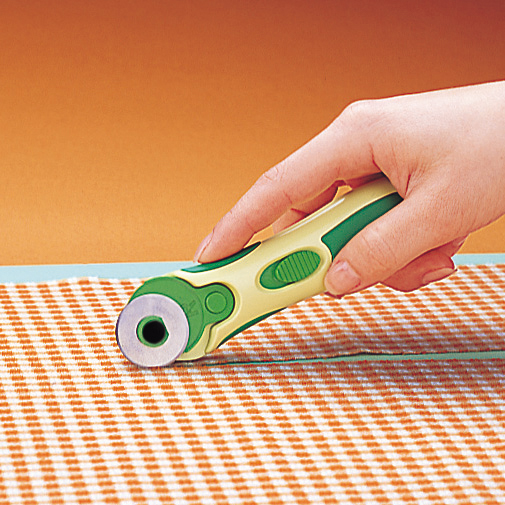
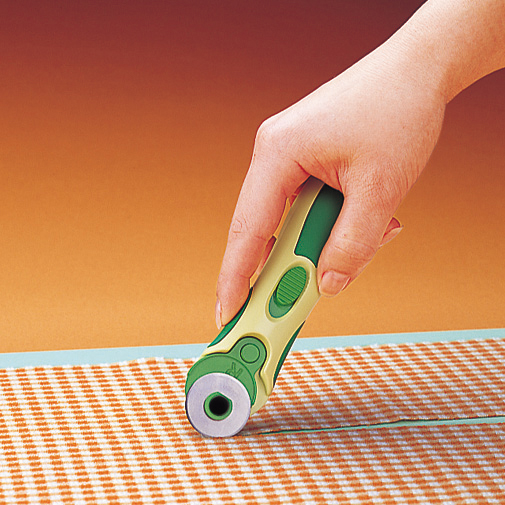
Art No. 7500: Rotary Cutter (45mm) - This is the larger of the mid-size rotary cutters. It has a nice balance of applications between the large and small rotary cutters. If you were to have only one size cutter this would be the one. It is ideally suited for long sweeping curves in fashion and works very well for cutting long strips for most quilting applications. Nothing turns out quilting strips and blocks as fast or precise. It is the true “Jack of All Trades” size.
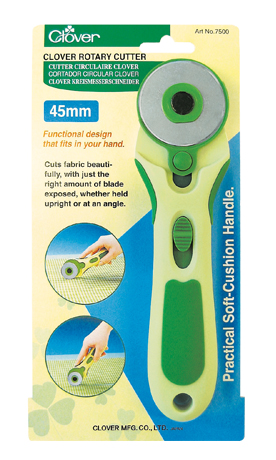
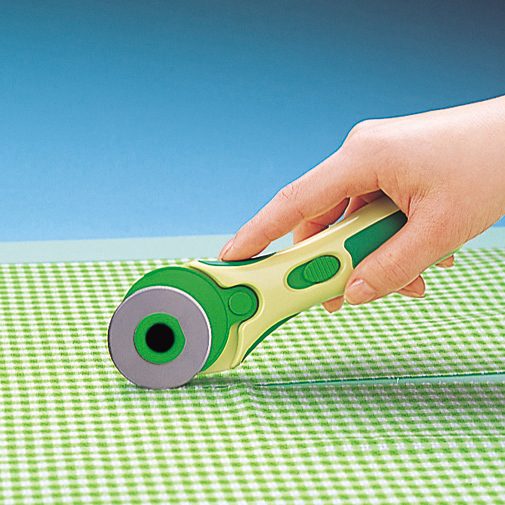
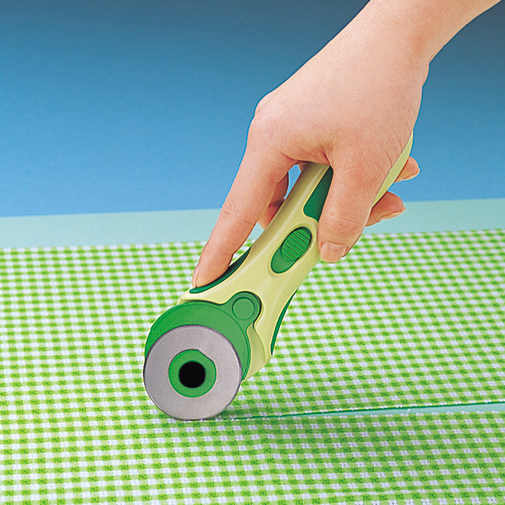
Art No. 7502: Rotary Cutter (60mm) - This is the largest size rotary cutter. It is designed specifically for long sweeping or straight strips for fashion, home decor and quilting. Calculating the circumference of this blade will tell you that it will last as much as three times longer than the 18mm blade cutting the same fabric. It’s science so who knew. It just makes sense that we should always use the largest blade possible for any job at hand. The economy is undeniable. We also get the best long, smooth and precise cuts.
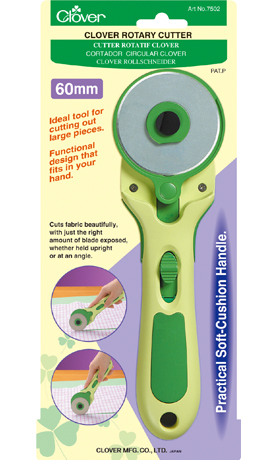
Rotary-Cutter_7502_use1
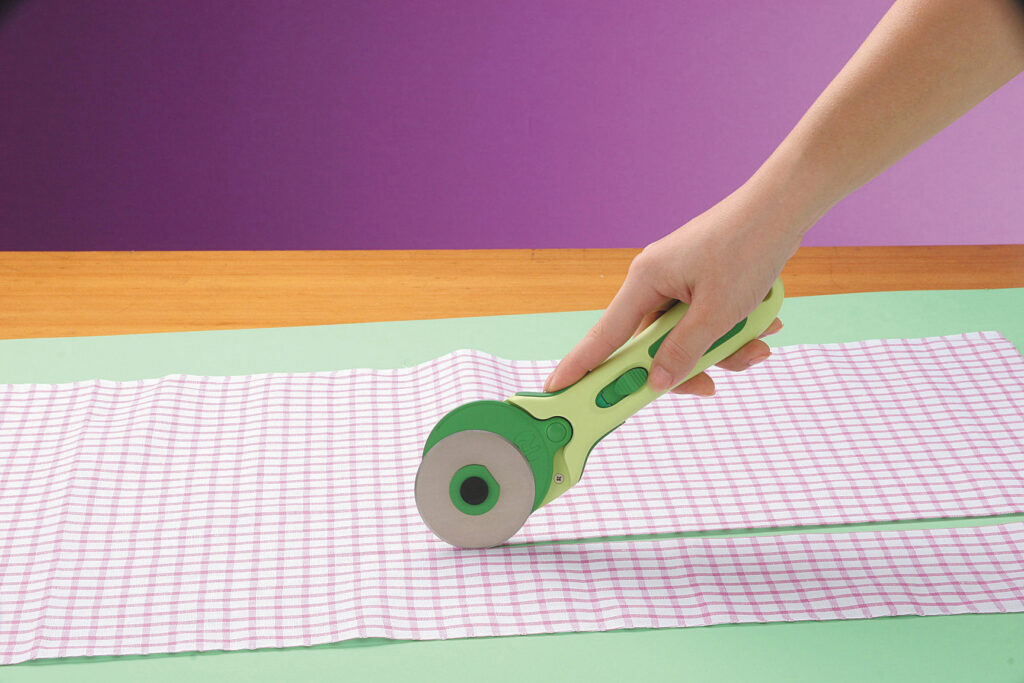

By Steve Butler
Назад


